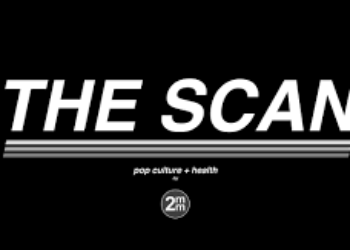Respiratory syncytial virus (RSV) vaccine produces transplacental neutralizing antibodies in pregnant women
1. The prefusion F protein of RSV (RSVpreF) vaccine produces neutralizing antibodies against RSV in both the serum of the pregnant mother and successful transplacental transfer to the infant.
2. Non-aluminum formulations of the RSVpreF vaccine produced fewer adverse side effects and greater transplacental neutralizing antibodies compared to aluminum formulations.
Evidence Rating Level: 1 (Excellent)
Study Rundown: Respiratory syncytial virus (RSV) infection is a major cause of infant hospitalization death worldwide. To combat this, a vaccine designed against the prefusion F protein of RSV (RSVpreF vaccine) can be administrated to pregnant women in the late second or third trimester of pregnancy. The objective of this phase 2b randomized control trial was to evaluate the safety and immunogenicity of the vaccines, as well as confirm the transplacental transfer of RSV neutralizing antibodies. Healthy pregnant women between 24-36 weeks gestation were randomized in a 1:1:1:1:1 ratio to receive either an intramuscular low dose of RSVpreF without aluminum hydroxide, high dose without aluminum, low dose with aluminum, high dose with aluminum, or placebo. The primary endpoints were a safety that followed adverse events to either the mother or the infants, immunogenicity which was the quantity of RSV titers and neutralizing antibodies, and transplacental transfer ratios of the neutralizing antibodies. The study found that most patients only experience mild to moderate reactions to vaccination and were higher in those receiving the aluminum formulation. No significant differences in adverse event incidence were found between the vaccine and placebo groups. Analysis of samples of serum and umbilical blood in patients receiving the vaccine detected RSV A and B neutralizing antibodies, but transplacental neutralizing antibody transfer ratios were higher in the non-aluminum formulation. Overall, this study confirms the safety and immunogenicity of the RSVpreF vaccine. Limitations of this study include its exclusive enrolment of Americans, limiting its generalizability, as well as a lack of follow-up on antibody titers following the birth or throughout infant development. Efficacy will formally be assessed in the subsequent phase 3 trial.
Click to read the study in NEJM
Relevant Reading: Structure of RSV Fusion Glycoprotein Trimer Bound to a Prefusion-Specific Neutralizing Antibody
In-Depth [randomized controlled trial]: In this multi-center, observed-blinded, placebo-controlled, phase 2b randomized control trial, 406 women and 403 infants were randomized in a 1:1:1:1:1 ratio to receive, by intramuscular injection, either 120 μg or 240 μg RSVpreF vaccine, formulated with or without aluminum hydroxide, or placebo, respectively. Eligible patients were healthy pregnant women at 24-36 weeks gestation. The primary objective was to evaluate the safety and immunogenicity of the vaccine ahead of its phase 3 efficacy trial. Maternal blood was drawn before vaccination, between delivery, at delivery, and up to 6 months after delivery. Umbilical cord blood was also collected, and infant blood is drawn up to 6 months after birth. Drawn blood was analyzed for immunogenicity endpoints including 50% titers of RSV and neutralizing antibodies. For the primary safety endpoint, patients and their infants were followed for adverse side effects via an electronic diary. 80.5% of the entire cohort received the RSVpreF vaccine, most of which only experience mild to moderate side effects including injection site reaction and moderate pain. Notably, patients receiving the vaccine with aluminum formulation reported side effects at a higher frequency. No differences were reported with respect to adverse side effects related to vaccination between all groups. While serious adverse events were experienced at delivery or shortly after, none were considered to be significantly linked to vaccination. With respect to immunogenicity, 50% geometric mean titers of RSV A neutralizing antibodies ranged from 11.0 – 15.1, and for RSV B neutralizing antibodies ranged from 13.7 – 17.5, indicating their presence in maternal blood. In umbilical-cord blood, RSV A neutralizing antibodies ranged from 9.7 – 11.7 and 13.6 – 16.8 for RSV B neutralizing antibodies. Corresponding transplacental transfer ratios were between 1.68 – 2.1 in groups without aluminum hydroxide formulation and 1.41 – 1.67 with aluminum. Overall, this study support that the RSVpreF vaccine induces RSV neutralizing antibodies in both the maternal and infant blood, supporting its exploration in a phase 3 efficacy trial.
Image: PD
©2022 2 Minute Medicine, Inc. All rights reserved. No works may be reproduced without expressed written consent from 2 Minute Medicine, Inc. Inquire about licensing here. No article should be construed as medical advice and is not intended as such by the authors or by 2 Minute Medicine, Inc.






